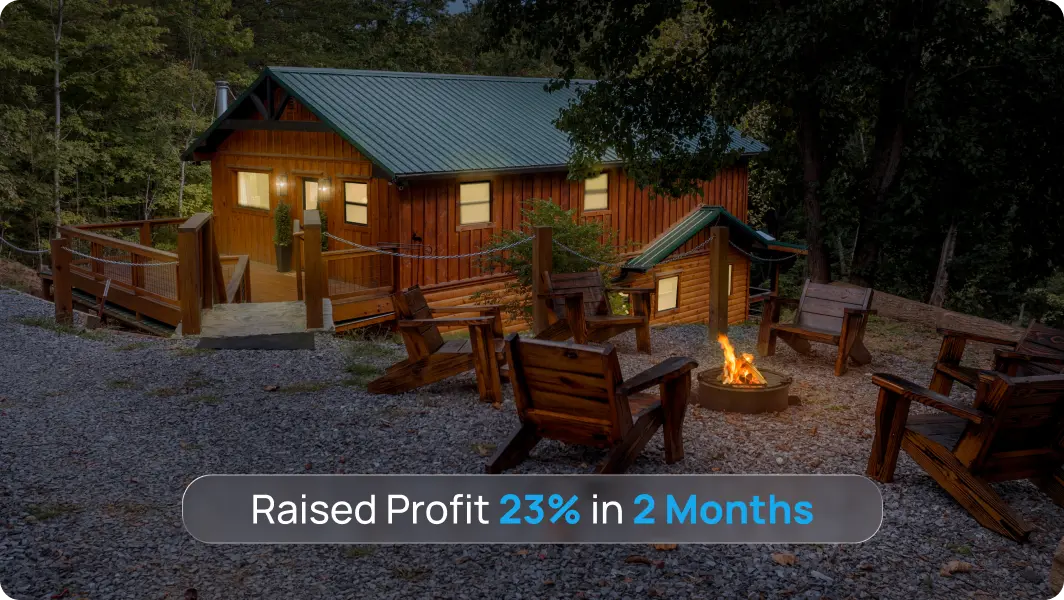Navigating Refund Abuse: How Triad Vacation Rentals Shielded an Owner from Exaggerated Claims and Unnecessary Losses
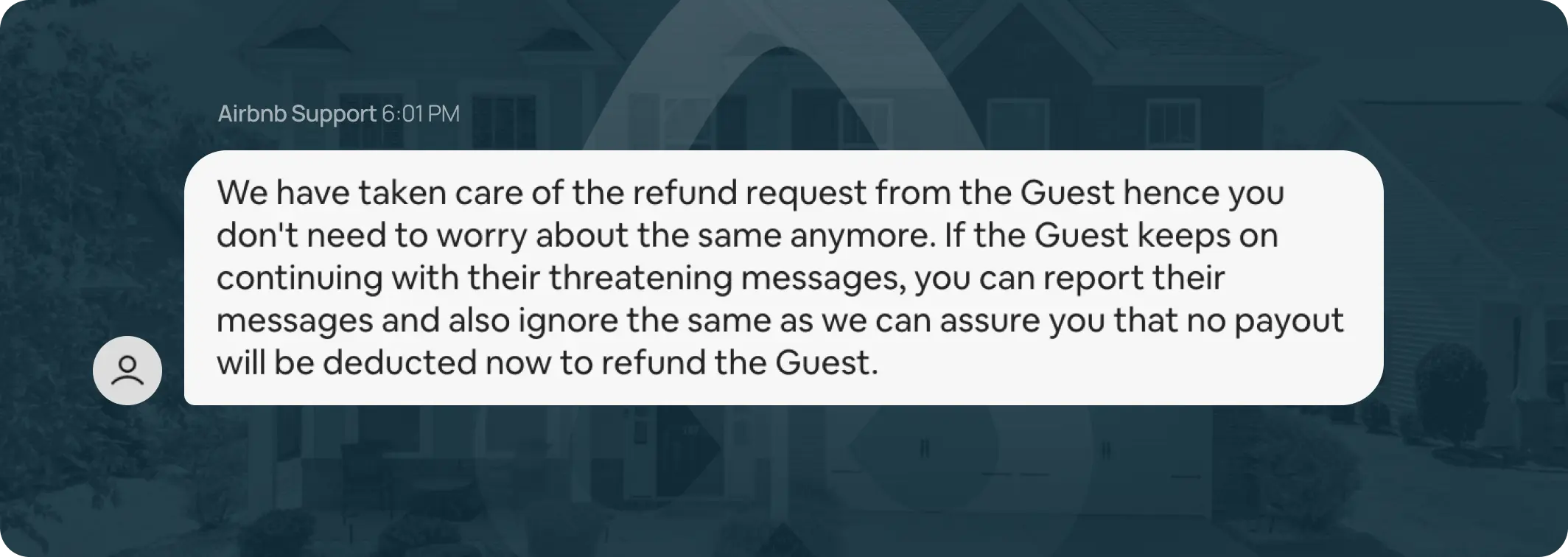
Executive Summary
Richard and Lucille booked a Triad home for August 28–September 2, 2025. Right after check-in, they started sending in complaints—some fair, many exaggerated. From there, their demands grew:
What they pushed for: A full refund, Extra vendor costs, Legal threats if they didn’t get their way
What they actually got: A 35% refund ($500.80), No extra charges covered, Case closed with Airbnb
Our Guest Experience team cut through the drama, checked the facts, and showed Airbnb which claims were real and which were not. By keeping it focused and calm, we saved the owner from losing thousands and kept the listing’s reputation safe.
Takeaway: Stick to facts, document everything, and push back when guests overreach.
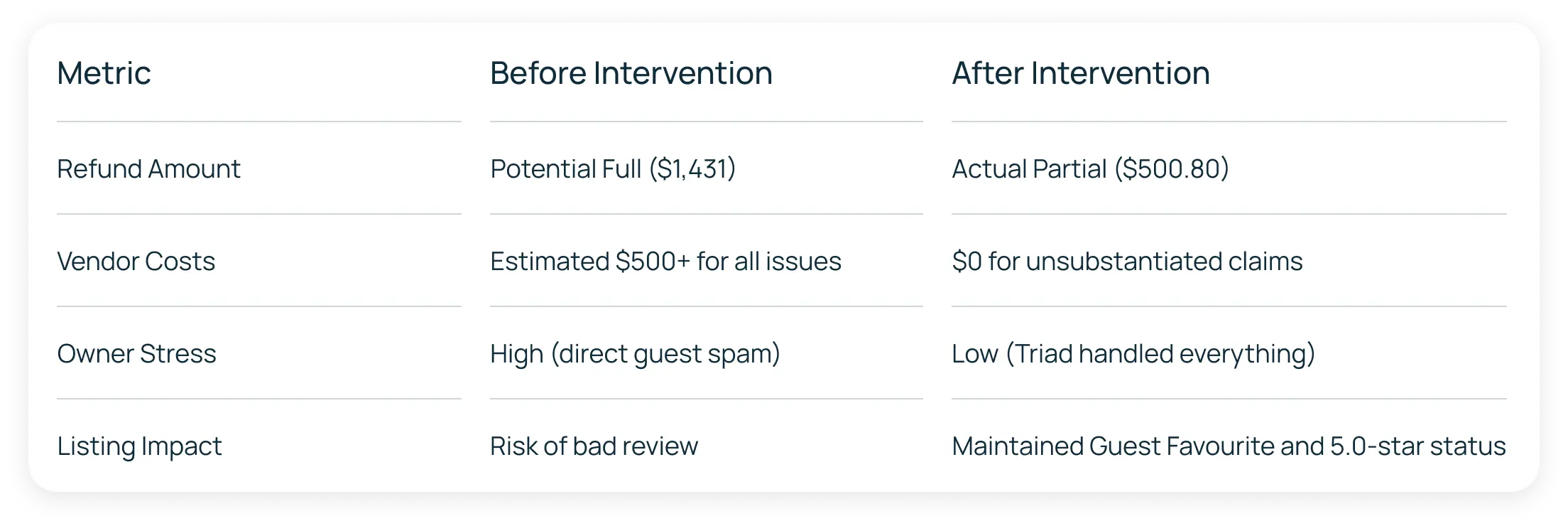
The Property and Background
The property is a 4-bedroom, 2.5-bath home in Chapin, South Carolina, listed on Airbnb as “Lake Murray Hideaway • Games, BBQ & Water Fun.” It sleeps up to 14 guests and is geared toward families and groups seeking a lakeside getaway with luxury amenities like a grill, community pool, and indoor games. The home includes essentials such as A/C, hot water, and smoke alarms, plus extras like garage access and an HOA pool key fob.
The owner, David, relies on Triad to handle Airbnb disputes and protect him from guests seeking free stays. For this reservation, the guests paid $1,431 for five nights, consistent with peak-season rates.
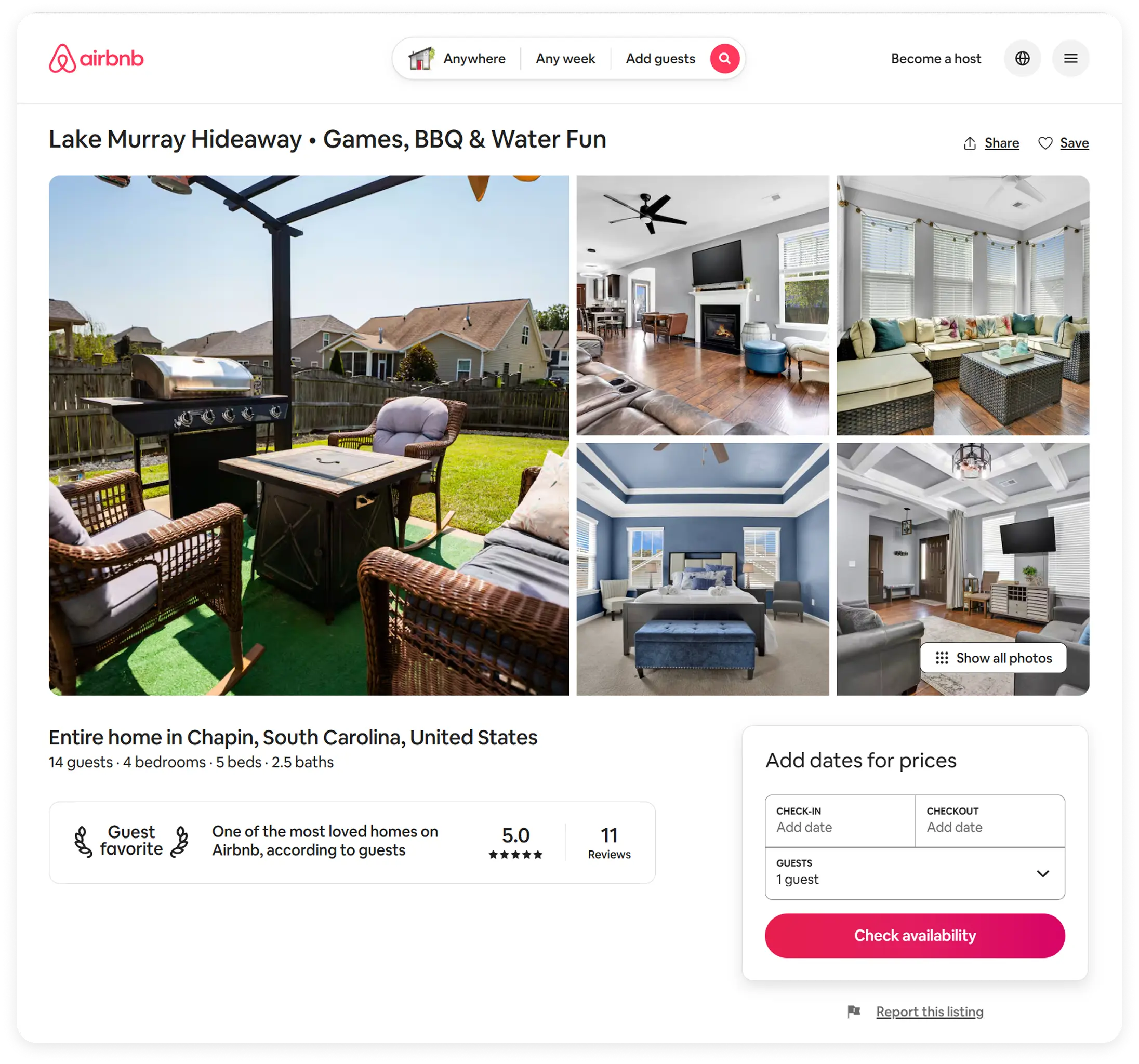
The Challenge: A Barrage of Guest Complaints
When Richard and Lucille checked in, they quickly started listing problems through the Airbnb app. What began as small fixable issues that David could handle soon grew into a full-blown dispute. The garage door belt was broken, which caused confusion about how to get in.
The air conditioning wasn’t cooling the house as fast as they wanted, so they complained it was too hot. They also claimed some lights didn’t work, but never gave details or proof. Later, they mentioned missing batteries for a remote. The kitchen sink’s hot water “wasn’t working,” though it turned out they simply hadn’t used it correctly. The wired smoke alarm chirped occasionally, and instead of letting us address it, they shut off the breaker themselves. To top it off, the HOA key fob didn’t work, which meant no access to the neighborhood pool.

The push for a refund wasn’t just a one-time complaint—it became a pattern. Richard and Lucille kept pressing for a full payout, even spamming the owner off-platform and threatening credit card disputes and legal action. Twice, they refused to let repair vendors in, which is a classic refund abuse tactic: block the fixes so the complaints pile up.
If left alone, this could have ended in a full refund, a bad review, and hundreds of dollars in pointless repairs—seriously hurting the owner’s revenue. Instead, our team stepped in, documented everything, and kept the situation under control. We also flagged a key improvement for the future: recommending a switch to a more reliable cleaning partner to identify maintenance issues like these before they become a reservation issue. We’re now actively helping the owner secure a stronger solution so issues like this don’t repeat.

Our Strategy: Collaborative Resolution with Fact-Based Vetting
Triad’s Guest Experience team stepped in as the middle ground between the owner and the guests, keeping things calm and sticking to Airbnb’s rules. From the start, it was clear the guests were pushing for a refund, so we focused only on facts, not feelings.
Each complaint was checked carefully. Smoke alarms were treated as a top priority, since Airbnb requires them by law, and we arranged immediate repairs. For the A/C, the guests later admitted it was cooling—just slowly, about 2–3 degrees an hour, which is normal for a house that size. The hot water “failure” turned out to be user error after we asked follow-up questions about how they were using the faucet. And for the lights, we requested proof. When none was given, we relied on Airbnb’s own standard: no photos or videos, no valid claim.
By sorting out real issues from exaggerated ones, we stopped the owner from paying for unnecessary repairs and kept the resolution fair.
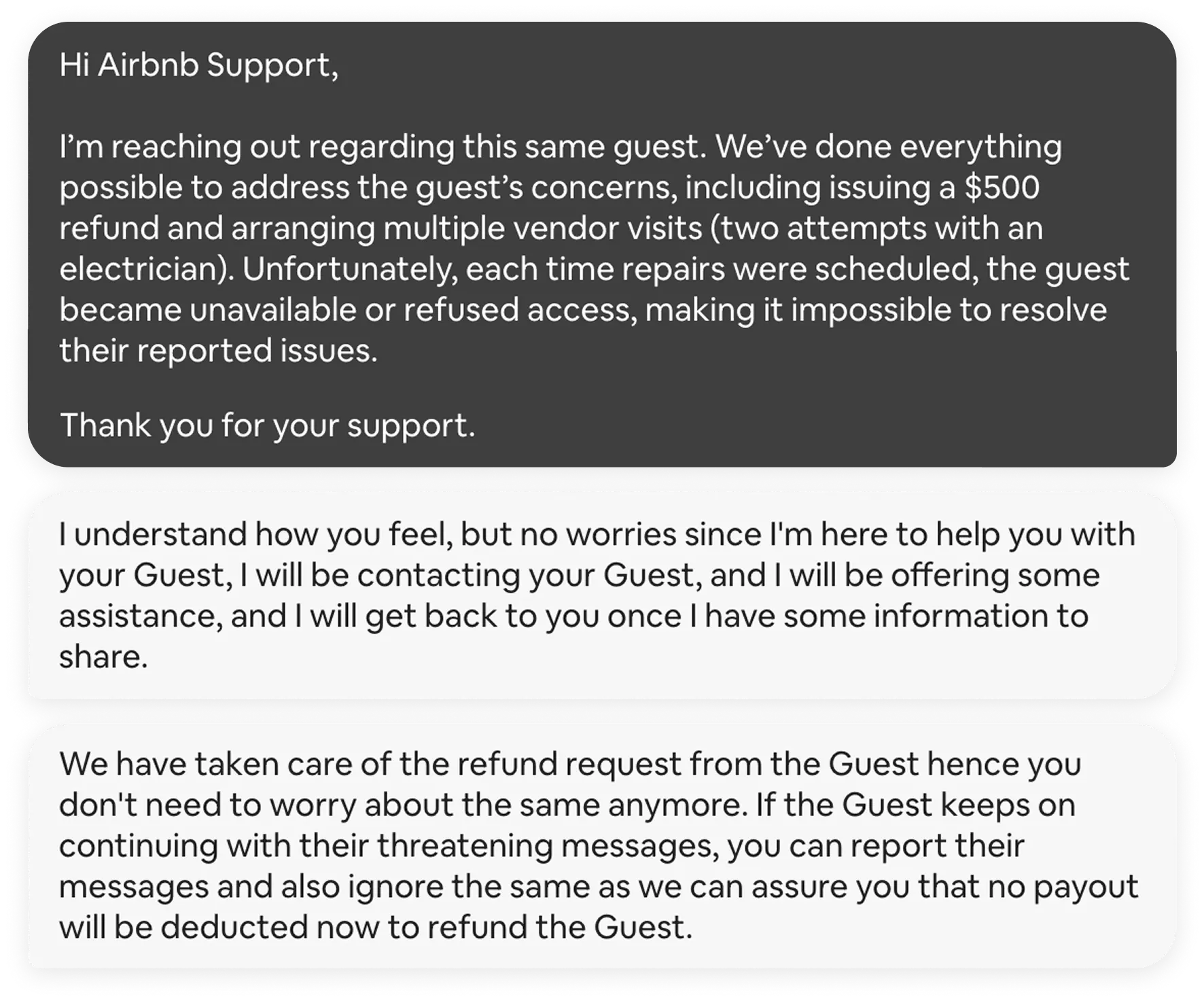
We opened a support case with Airbnb right away and made sure all communication stayed on the platform, protecting the owner from off-platform messages and pressure. Refund offers were handled step by step to show good faith: first, 10% back ($143) plus a free late check-out, then later raised to 35% ($500.80) after the guests kept pushing. That’s where they finally stopped. As the threats continued, we documented every message and flagged the behavior to Airbnb, pointing out the pattern of refusing fixes while demanding more money. Airbnb’s zero-tolerance policy on harassment and abuse worked in our favor, and we used that to frame the case as refund abuse.
In the end, the owner stayed out of the crossfire while our team managed every conversation and protected their bottom line.

Results: Protected Revenue and Enhanced Owner Confidence
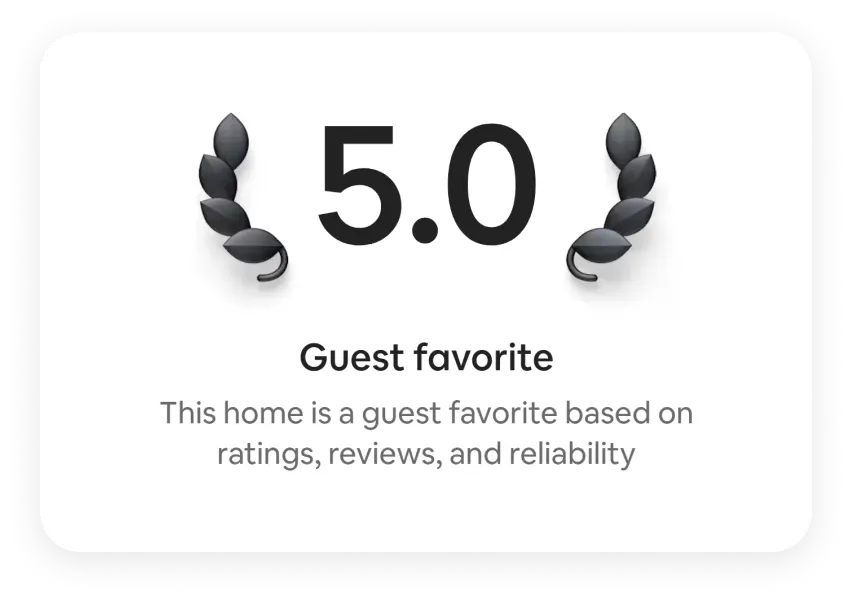
The outcome was a clear win for the owner—and a showcase of our team’s expertise. Instead of caving to overblown demands, we held the line at a fair $500.80 refund (35%), tied only to real issues like the garage door and pool access. That move alone protected the owner from losing over $1,000 in unnecessary payouts.
Just as important, we stopped wasteful vendor visits for “problems” that didn’t exist, saving another $200–$500 in avoidable costs. By staying sharp, documenting everything, and knowing exactly how to work within Airbnb’s system, our team turned what could have been a financial mess into a clear win for the owner. The property maintained its Guest Favorite status, protecting both revenue and reputation.

Lessons Learned
This case proved again why process matters. Our team knows that documentation is king—every claim needs photos or videos, and if guests can’t provide them, their story doesn’t hold weight. We also recognize the early warning signs of refund abuse, like blocking repairs or sending threats outside the platform, and we act fast before things spiral.
By offering small, good faith refunds along the way, we show cooperation without giving up the farm. And when things cross the line, we know how to use Airbnb's own policies on safety, communication, and harassment to flip the situation in the owner's favor. Professional communication and guest reviews build long-term credibility that protects hosts even when individual disputes arise. That mix of strategy and experience is exactly why Triad owners can trust that we'll protect their revenue and reputation no matter how messy the guest.
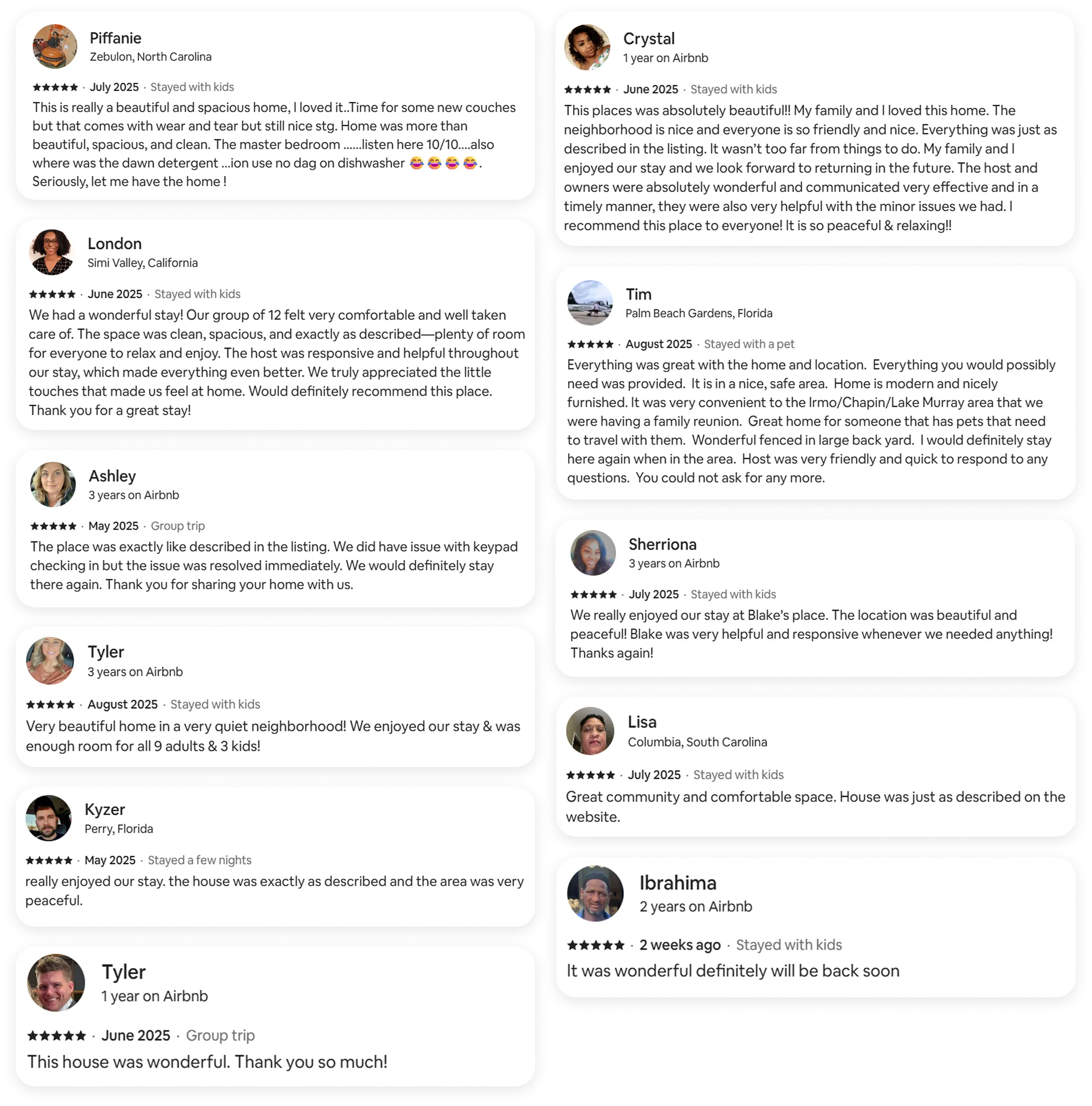
Final Thoughts
This case is a perfect example of why professional management matters. Guests can be unpredictable, and without the right team, one stay can turn into a financial and reputational headache. At Triad Vacation Rentals, we do more than fill calendars—we defend your investment, solve problems before they spiral, and keep properties like Lake Murray Hideaway shining as guest favorites.
If you want peace of mind knowing experts are in your corner, let our Guest Experience team handle the tough stuff while you enjoy the returns. Ready to protect your property and maximize its potential? Let’s get started.
Similiar Blogs

How We Turned an Off-Season Lake Granbury Launch Into an Airbnb Guest Favorite in 4 Months
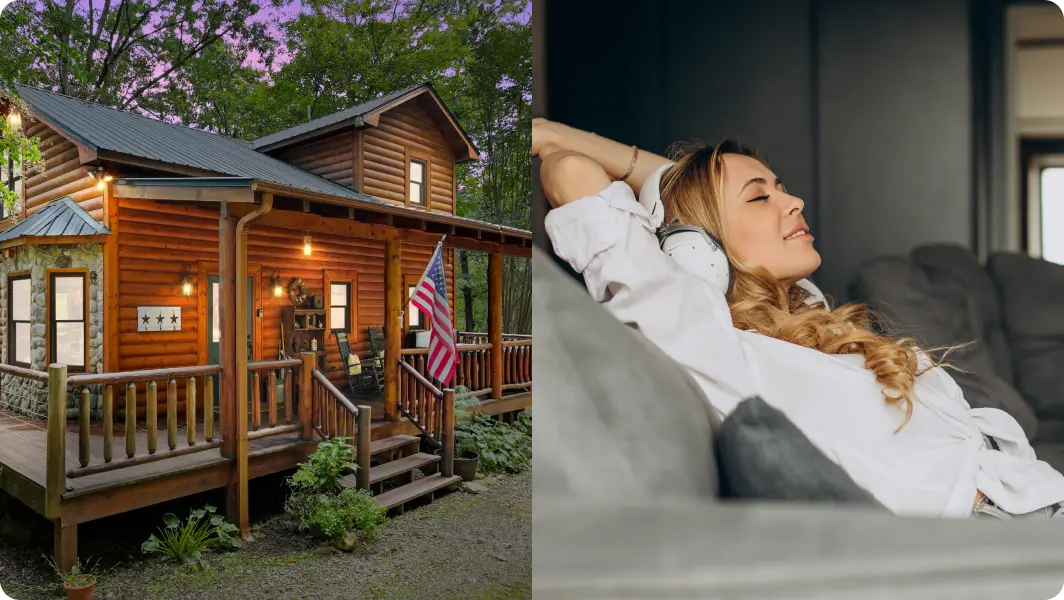
From Midnight Lockbox Calls to Peace of Mind: How Kim Reclaimed Her Life While Doubling Her Revenue
